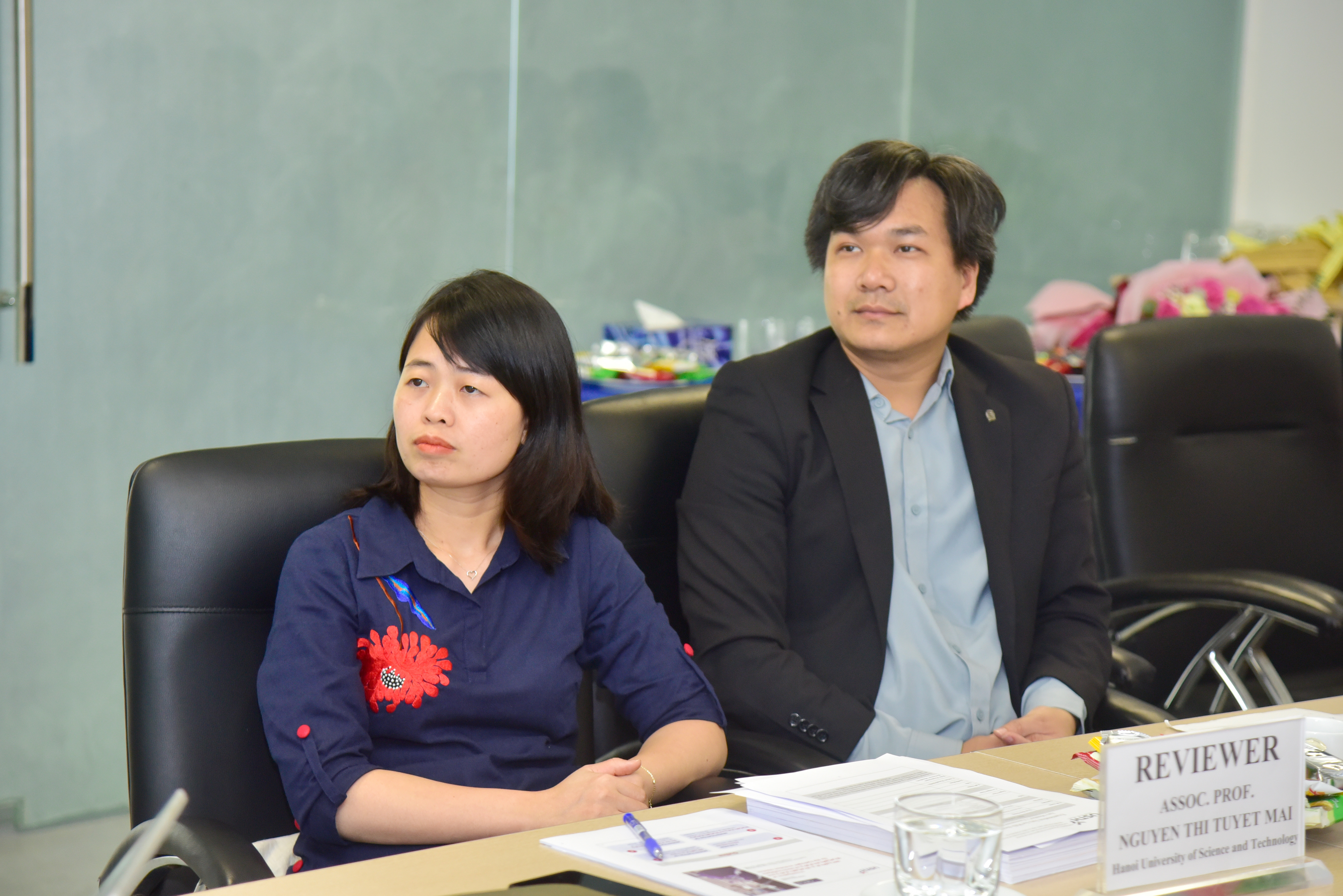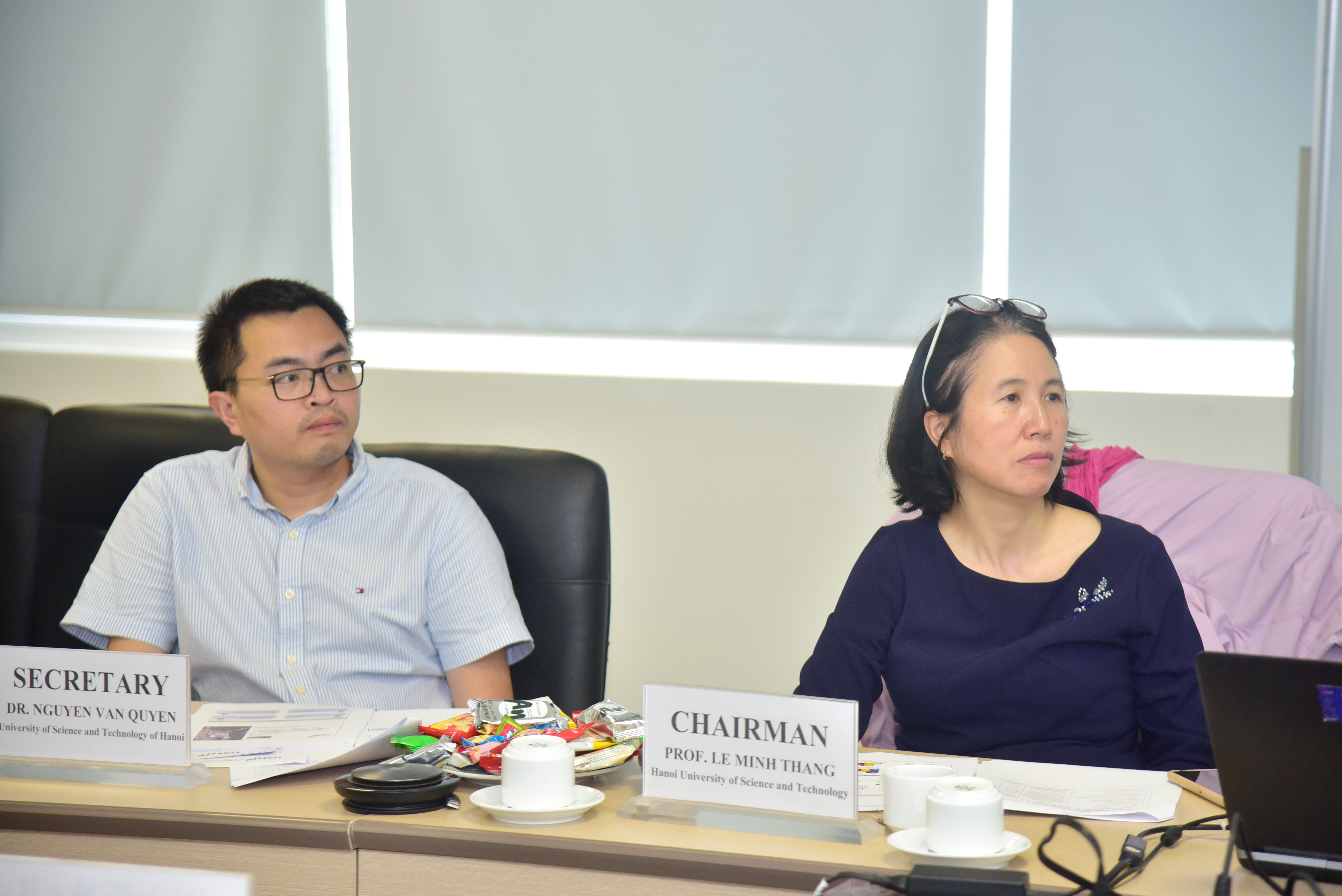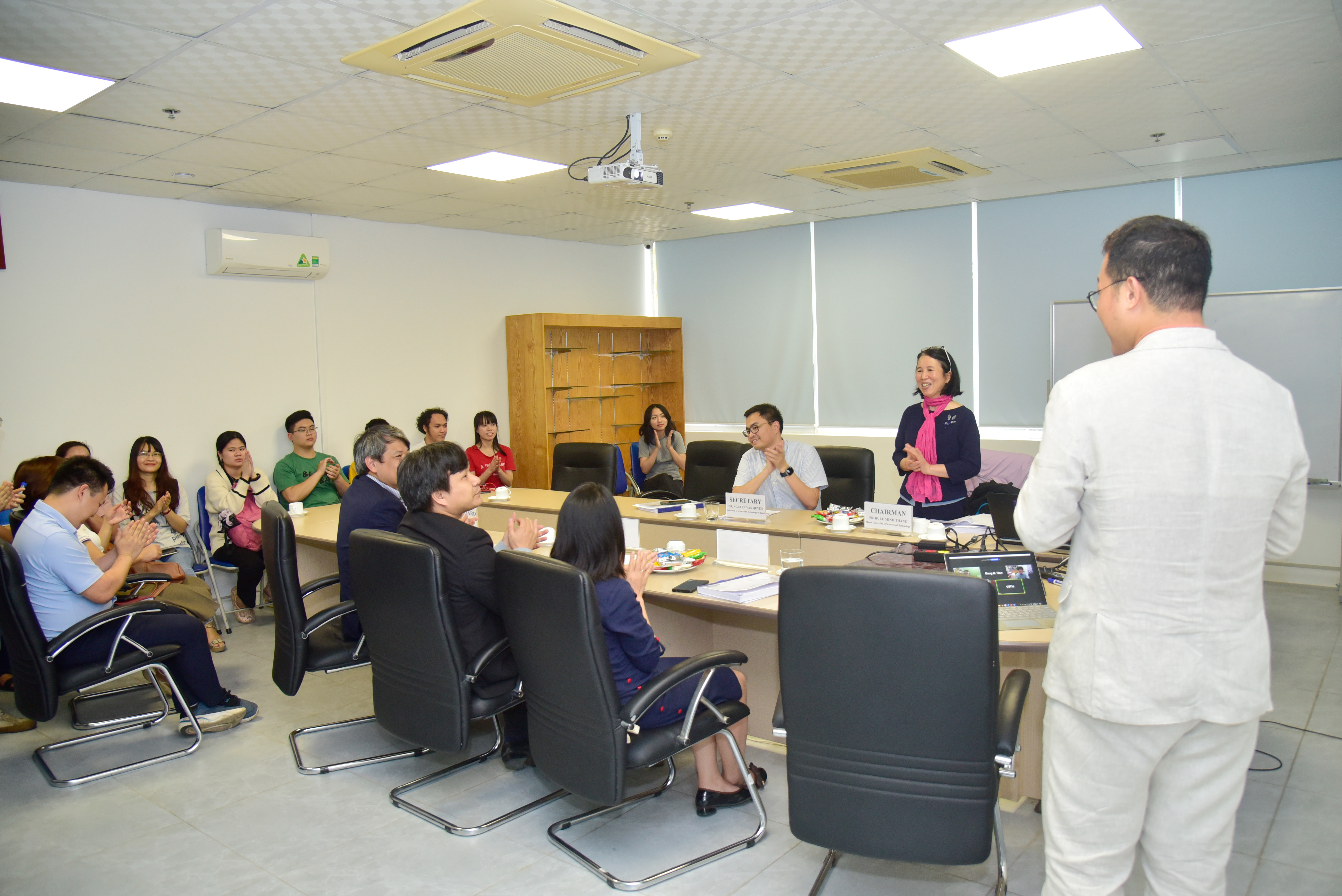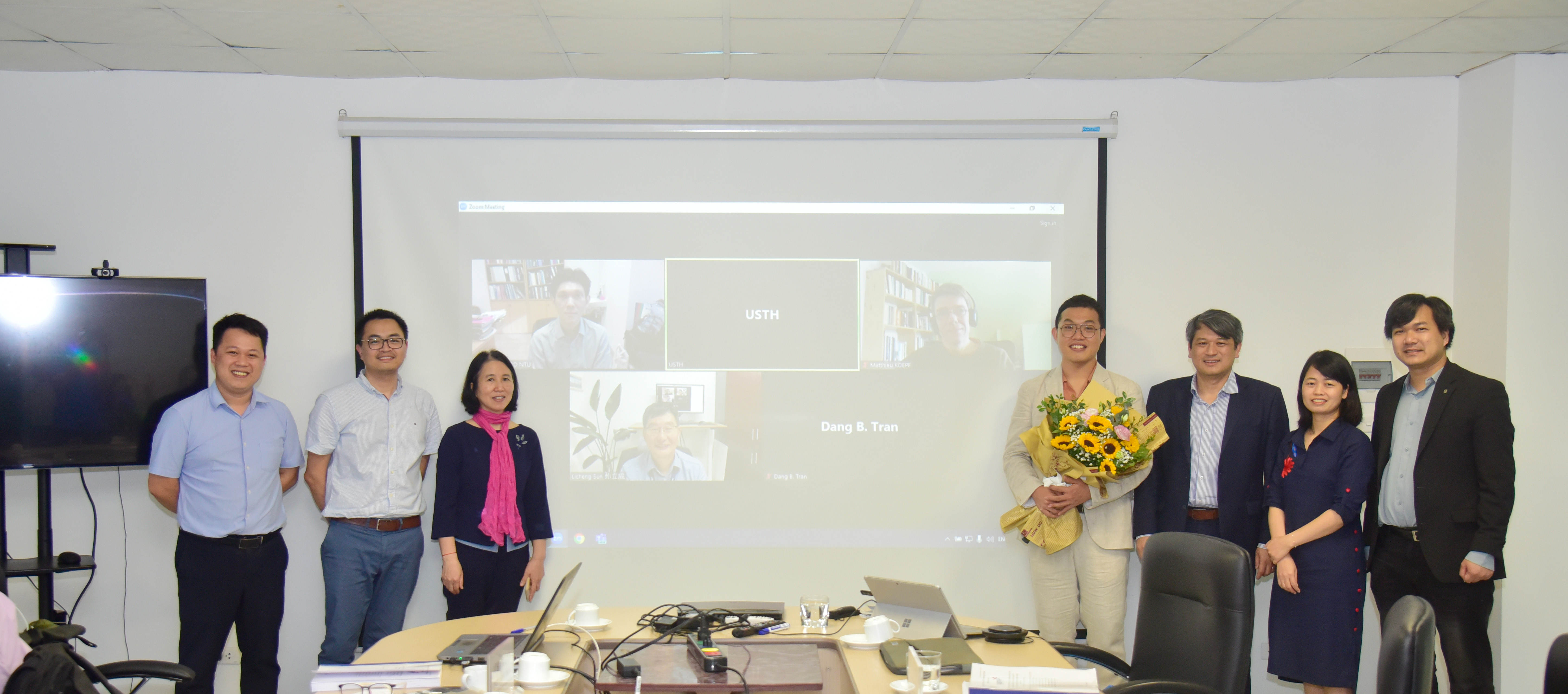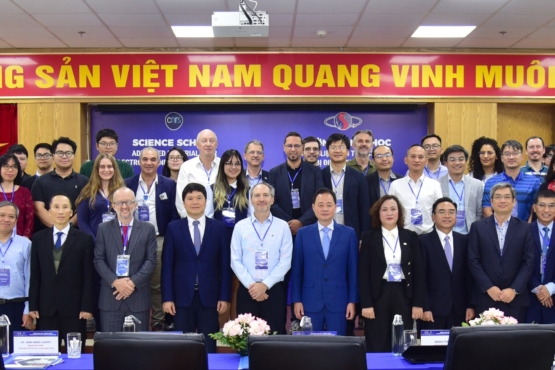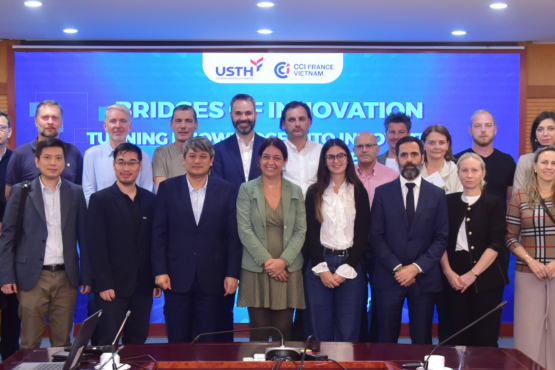On March 27, 2024, University of Science and Technology of Hanoi (USTH) held a doctoral thesis defense for PhD student Tran Buu Dang, majoring in Advanced Materials Science and Nanotechnology with the thesis title: “Investigation of (NH4)2[Mo2S12], [Et4N]2[Mo3S7Br6] and [Et4N]2[Mo3Se3S4Br6] as electrocatalysts for the hydrogen evolution reaction”
The doctoral thesis was under the supervision of Assoc. Prof. Tran Dinh Phong – Vice Rector of USTH, Director of Department of Fundamental and Applied Sciences, and Dr. Nguyen Duc Anh – Deputy Director of Department of Fundamental and Applied Sciences.
The PhD thesis defense was attended by 7 members of the thesis jury, including:
- Prof. Le Minh Thang, Hanoi University of Science and Technology, Chairman
- Prof. Licheng Sun, KTH Royal Institute of Technology, Sweden, Reviewer
- Assoc. Prof. Han Sen Soo, Nanyang Technological University, Singapore, Reviewer
- Assoc. Prof. Nguyen Thi Tuyet Mai, Hanoi University of Science and Technology, Reviewer
- Assoc. Prof. Le Manh Tu, Phenikaa University, Member
- Dr. Matthieu Koepf, French Alternative Energies and Atomic Energy Commission
- Dr. Nguyen Van Quyen, USTH, Member, Secretary
At the defense, PhD student Tran Buu Dang presented the research results of his thesis to the jury.
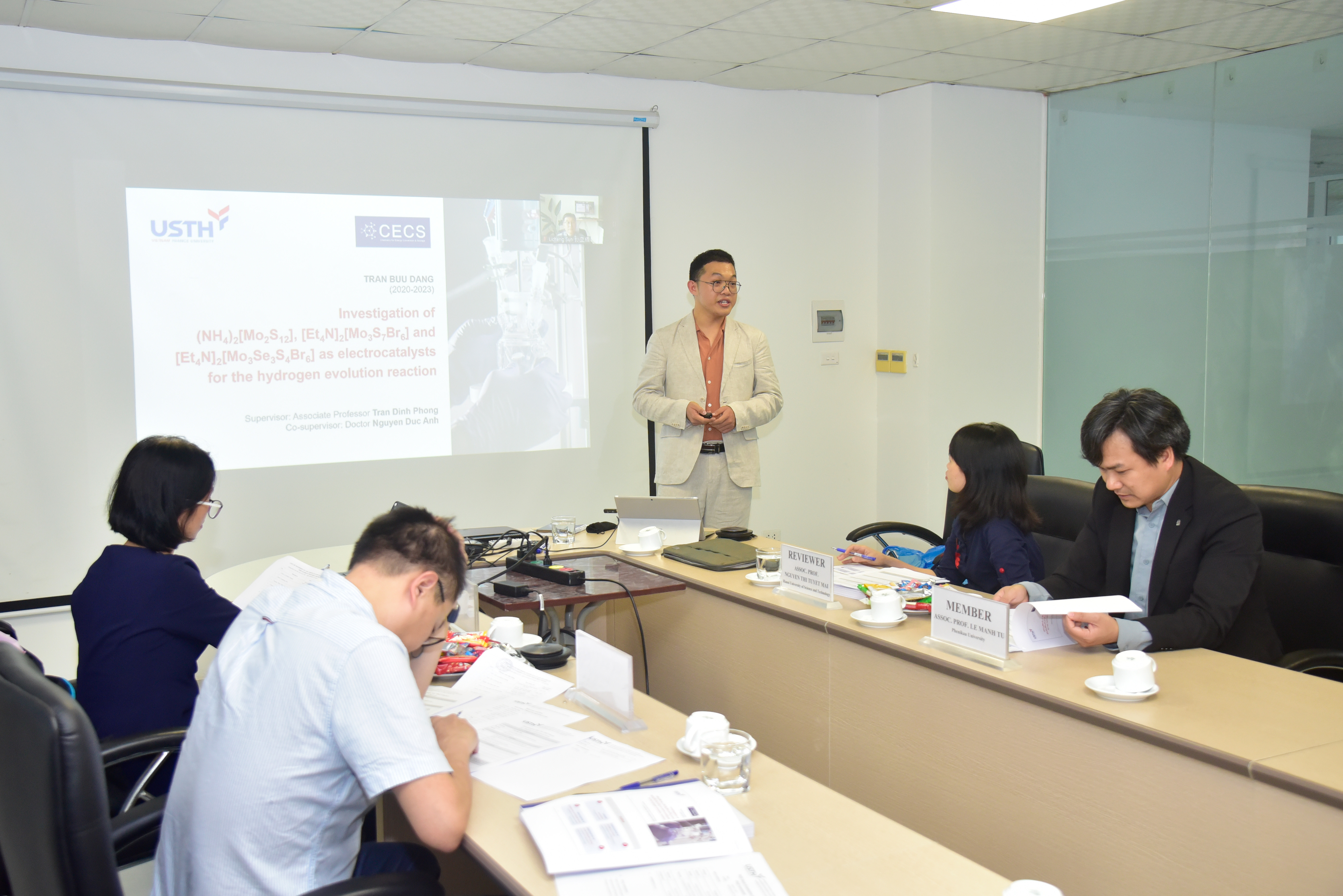
According to PhD student Tran Buu Dang, for water electrolysis, one of the long-term goals is to improve the performance of electrocatalysts for the hydrogen evolution reaction (HER). Sulfido molybdenum complexes have been considered potential candidates attracted many studies for decades. The typical material is an amorphous MoSx which exhibits an outstanding catalytic activity for HER. The structure of a-MoSx contains molybdenum centers coordinated to terminal disulfide and bridging disulfide ligands.
To understand the role of disulfide ligand in the catalysis, monomer [Mo3S13]2- anion was prepared and its electrochemical properties were compared to that of [Mo2S12]2- complex which has a similar terminal disulfide ligand. In general, the terminal disulfide could be a linking group to polymerize [Mo2S12]2- and [Mo3S13]2- generating amorphous molybdenum sulfide [MoS] material under the electrochemically reductive or electrochemically oxidative deposition. Such terminal disulfide ligand is reduced before starting the catalytic wave, implying the obtained Mo-vacancies which are the actual active sites for HER catalysis.
Without having the terminal disulfide ligand, hexabromo sulfido molybdenum [Et4N]2[Mo3S7Br6] complex also enables catalyzing the proton reduction to evolve hydrogen evolution through the metal-assisted bridging-disulfide-centered mechanism in anhydrous acetonitrile solution. For comparison in the H2 evolution catalytic performance, [Et4N]2[Mo3S7Br6] complex requires more energy than [Et4N]2[Mo3Se3S4Br6] to operate the catalysis in acetonitrile solution.
During the catalysis, [Et4N]2[Mo3Se3S4Br6] complex experiences the reductive electrodeposition, generating molybdenum selenide sulfide film [MoSSe] on the electrode surface. This electrodeposit also performs the comparable hydrogen evolution activity. Thus, the [Et4N]2[Mo3Se3S4Br6] complex could be considered a promising precursor to synthesize [MoSSe]-based catalysts. This thioselenide molybdenum complex transforms into [Mo3Se3S4Brx]n polymer-based catalyst by the acidification and electrodeposition, whereas it transforms into the MoS2-like [MoSSe] catalyst by the thermal decomposition in an argon atmosphere. In a 0.5 M H2SO4 solution, the former performed more catalytically active than the latter catalyst for hydrogen evolution.
The jury highly praised PhD student Tran Buu Dang’s research outcomes, recognizing them as impactful work in advancing electrocatalysis technology for hydrogen production. They discussed in a closed session and voted, resulting in 7/7 votes in favor.
PhD candidate Tran Buu Dang expressed his heartfelt thanks to Assoc. Prof. Tran Dinh Phong and Dr. Nguyen Duc Anh for their dedicated supervision, to the lecturers/staff at USTH for their support, and to his family, friends, and colleagues for their unwavering encouragement throughout his research journey. Their support was a great source of motivation for him to complete his thesis defense.
On behalf of the jury, Prof. Le Minh Thang extended her congratulations to PhD student Tran Buu Dang for successfully defending his doctoral thesis. She also wished him great success in his future endeavors and career.
